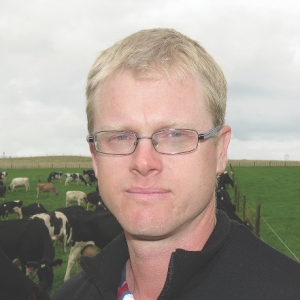The unit’s head, Stefan Bryant, says the move is partly, but not exclusively, in response to Horizons Regional Council’s One Plan which sets new, high targets for nitrogen leaching into soils. This and other plans affect dairy farmers more than sheep and beef farmers.
Bryant says they model what a farm is doing now, then put that into the Overseer programme and from there work out what the N leaching status of the farm is. “If there are any issues we can suggest mitigation strategies we think are the most appropriate, and put that information back through Overseer so we can test the model. We also use Farmax to look at the effect on profit of those mitigation strategies. Later we put the stock data through Overseer and get a clear picture of the nutrient losses.”
Bryant says the latest version of Overseer takes more account of different soil types and the drainage issues with those soil types. On some farms it will be farmers who have dropped their leaching rate, while on others it will have increased. He notes that with Overseer 6 the combination of freer draining soils and high rainfall can introduce more risk than under the earlier version of Overseer.
Bryant says they and other consultants are setting out to provide advice and tools for farmers having to meet new environmental standards set by regional councils nationwide. Part of the challenge is that each regional council has its own interpretation of the RMA and the new water regulations.
An issue facing dairy farmers in the Horizons region is meeting their N targets. It’s been suggested that in the Tararua area, up to 90% of dairy farmers will require a discretionary resource consent to continue farming if the One Plan is not changed.
Says Bryant, “If farmers get down to their imposed limits this could mean a significant reduction in stocking rates because that is one of the main drivers of the nitrate leaching. Our tool will be able to show the implications of that reduction in stocking rate. It could potentially show that it’s not possible to run the farm as an effective business and prove to the council that the N levels are too restrictive.”
While the new rules are providing a new business opportunity for consultants, Bryant says his goal is to make New Zealand agriculture more sustainable. “Twenty years ago we were just starting to talk about effluent and discharges into waterways. Now the focus has shifted and people are a bit more understanding of the science. There’s a lot more public awareness of it too. I would hate to see farmers go out of business and I hope people like myself can give them sound advice on environmental sustainability and help them to remain profitable.”











